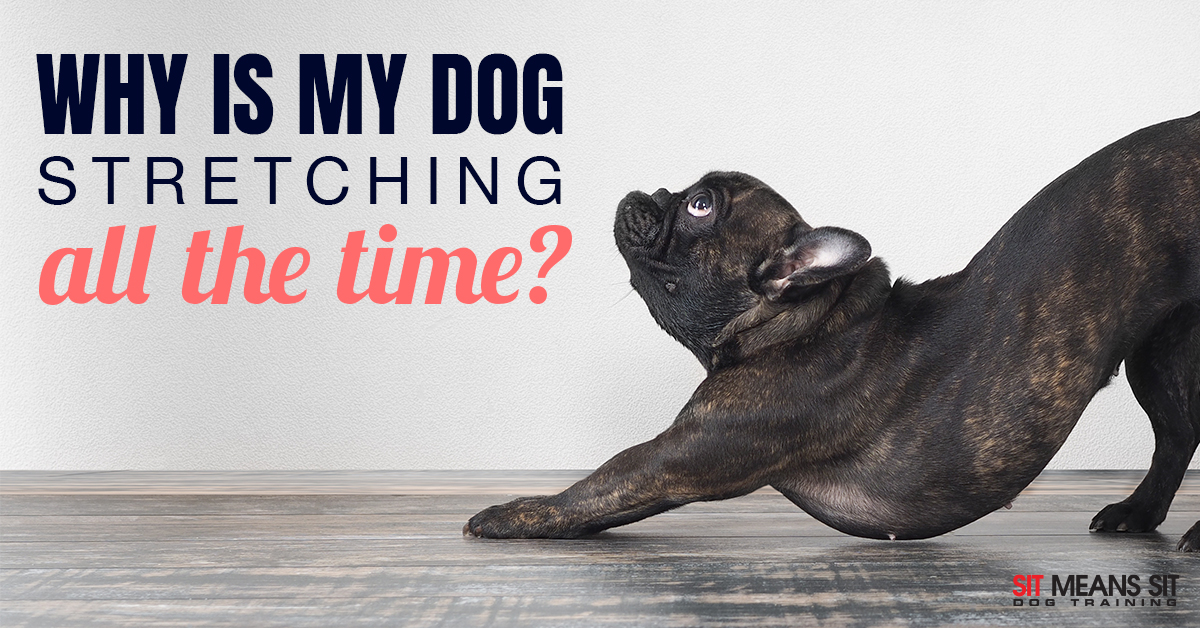
Why Is My Dog Stretching a Lot?
You’ve probably seen your dog stretch a million times and haven’t thought much of it. Some dogs do it more than others, whether it be after a nap, or when they’re trying to tell you they need to go out and potty.
Although stretching in itself isn’t a cause for concern, if you start to notice your dog stretching more than usual there could be an underlying reason for the behavior. This can range from stress to gastrointestinal issues.
Needing Exercise
Your dog might start stretching more than usual when they are deprived of exercise. This is especially true in high-energy breeds such as border collies and huskies. Little to no exercise can make your dog sore and in turn they might start stretching to alleviate muscle pain. If you start to notice this, take your dog for a few extra walks or play a game of fetch in the yard. They will thank you!
Wanting To Play
If your dog is stretching their front legs and ‘bowing’, they probably want to play! This is a position dogs commonly use to indicate that its playtime with other dogs or humans.
This type of stretch is usually accompanied by a wagging tail and happy expression and is used to show other dogs that they aren’t looking to engage in aggressive behavior.
Splooting
Splooting is when a dog lies completely flat and stretches its belly on the floor. It’s a comfortable position for longer legged breeds such as greyhounds and labs, and it also helps cool them in warm weather.
Some dogs will even dig holes in the yard during summer months and position themselves this way to get some extra cooling on their belly! If it’s a hot day and you notice your dog doing this, make sure to check the temperature and always keep your dog’s safety in mind.
Upset Stomach/Bloat
Upset stomach or canine bloat could be one of the more serious reasons your dog is excessively stretching. Stretching can help relieve the pressure and gas build up that comes with bloat.
Excessive stretching can be an early sign of bloat, but make sure to look for these other tell tale signs before jumping to conclusions:
- Swollen stomach
- Excessive drooling
- Pacing/Restlessness
- Attempts to vomit with no success
- Rapid breathing
Bloat is usually caused by eating or drinking too soon after exercise, and it’s usually more prominent in large breeds such as Bernese Mountain Dogs and Great Danes. After a walk or playing in the yard, make sure your dog’s breathing has slowed and their temperature has dropped before giving them food and water.
If your dog is one that inhales their food within a couple of bites, try using a puzzle bowl instead to slow their eating. Elevated food bowls can also help prevent canine bloat.
Pancreatitis
Stretching can be an early sign of pancreatitis in dogs. They may try to take the pressure off their muscles by continuously stretching their abdomen.
The symptoms of pancreatitis and canine bloat can be similar, so it’s important to get your dog to a vet if symptoms persist or appear worse.
When Is Stretching A Cause for Concern?
In general, stretching is rarely a cause for concern. You might start to notice it more as your dog ages. Especially if they have been laying down for long periods of time. Remember to take your pup to routine vet appointments, and regularly inspect their joints (knees, elbows, ankles) for any signs or pain or mobility issues.
